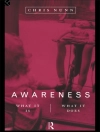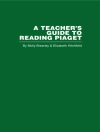Metacognition is the first textbook to focus on people′s extraordinary ability to evaluate and control their cognitive processes. This comprehensive text covers both theoretical and empirical metacognitive research in educational, developmental, cognitive and applied psychology.
Authors John Dunlosky and Janet Metcalfe address many of the key questions that have inspired scientists to pursue research in this domain. To answer these and many other questions, the authors assess major theoretical themes and programmatic research in the field. The authors also include chapters that define the scope of metacognition and cover its historical origins. Not only do they describe well-received theories about the nature of metacognition, but they also highlight unresolved mysteries currently on the cutting-edge of research.
Key Features
- Emphasizes the practical relevance of theory and research in metacognition to learning with the use of ‘Application’ boxes
- Introduces students to important questions that have yet to be answered by the metacognitive research literature with the inclusion of ‘Mystery’ boxes
- Provides three easy-to-conduct demonstrations (e.g., tip-of-the-tongue experience, delayed-judgment-of-learning effect, etc.) that students can try themselves
- Offers brief biographies that introduce students to some of the most influential leaders in metacognition
- Includes a general summary at the end of each chapte
Intended Audience
This text is an ideal resource for undergraduate cognitive psychology students. It also serves as comprehensive handbook for more advanced students and psychological scientists engaged in the study of metacognitive processes.
สารบัญ
Preface
Chapter 1. Introduction
Chapter 2. History
Comte′s Paradox and Turn-of-the-20th-Century Introspection
Some Shortcomings of Introspectionism
The Cognitive Renaissance
The Return of Introspection and the Rise of the Metacognitive School of Psychology
SECTION 1: Basic Metacognitive Judgments
Chapter 3. Methods and Analyses
Metamemory: Measures and Questions
Metamemory: Collecting, Analyzing, and Interpreting Data
Overview of the Remaining Chapters on Basic Metacognitive Judgments
Chapter 4. Feelings of Knowing and Tip-of-the-Tongue States
Theories About Feeling-of-Knowing Judgments
Tip-of-the-Tongue States
Brain Bases of FOK States
Functions of Feelings of Knowing
Chapter 5. Judgments of Learning
Do All Monitoring Judgments Tap the Same Information?
Variables Influencing JOL Accuracy
Theories About Judgments of Learning
Function of Judgments of Learning
Chapter 6. Confidence Judgments
Factors Influencing RC Accuracy
Theories About Retrospective Confidence
Function of Retrospective Judgments
Chapter 7. Source Judgments
Factors That Influence Source-Monitoring Accuracy
The Source-Monitoring Framework
Breakdowns of Source and Reality Monitoring
Brain Bases of Source-Monitoring Judgments
SECTION 2: Applications
Chapter 8. Law and Eyewitness Accuracy
Confidence and False Memories
Does Witness Confidence Matter to Jurors?
Lying
Hindsight Bias
Chapter 9. Education
General Models of Student Self-Regulated Learning
Student Metacognition in Specific Domains
SECTION 3: Life-Span Development
Chapter 10. Childhood Development
Development of Theory of Mind
Development of Metamemory
Relationship Between To M and Metamemory
Chapter 11. Older Adulthood
What Do Older Adults Believe About Memory?
Aging and Memory Monitoring
Aging and Control of Learning and Retrieval
References
Index
About the Authors
เกี่ยวกับผู้แต่ง
Janet Metcalfe is Professor of Psychology and of Neurobiology and Behavior at Columbia University. She has been extensively involved in metacognitive research, both theoretical and applied, for over 15 years and has written journal articles and book chapters and has edited monographic volumes on the topic, including Metcalfe and Shimamura′s Metacognition: Knowing about Knowing (MIT, 1994). She is on the editorial board of the newly established journal Metacognition and Learning.












